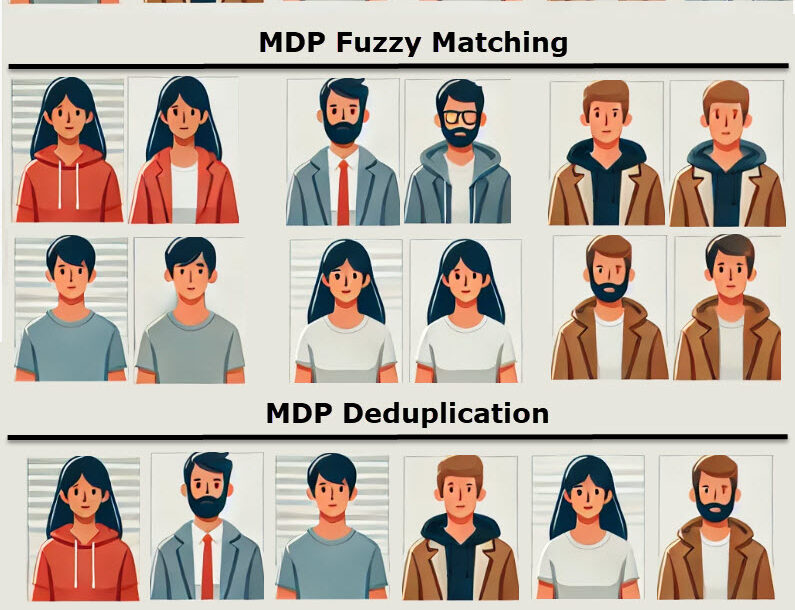In the age of big data, organizations rely on accurate information to make smarter decisions. However, inconsistent or duplicate records can reduce the effectiveness of operations across marketing, sales, analytics, and reporting. This is where fuzzy data matching becomes essential. By enabling systems to recognize similar—but not identical—records, fuzzy data matching helps clean your data and deliver better results across your business.
 What is Fuzzy Data Matching?
What is Fuzzy Data Matching?
Fuzzy data matching is the process of identifying records that are approximately equal rather than exactly the same. Unlike traditional matching methods, which rely on exact text or number matches, fuzzy data matching uses algorithms to detect close similarities between values.
For example:
“Jon Smith” and “Jonathan Smith”
“Acme Corp.” and “Acme Corporation”
“123 Main St.” and “123 Main Street”
Even though these entries aren’t identical, fuzzy data matching algorithms like Jaro-Winkler or Levenshtein distance can score them as high-probability matches. This makes it possible to link customer records, supplier information, product names, or any other critical data—even if they contain typos, abbreviations, or inconsistent formatting.
 The Problem with Dirty Data
The Problem with Dirty Data
Dirty data refers to records that are duplicated, inconsistent, misspelled, or poorly formatted. This is one of the biggest challenges in data management today. Dirty data leads to:
Duplicated customer communications
Inaccurate reporting and analytics
Wasted marketing spend
Poor customer experiences
Operational inefficiencies
Fuzzy data matching provides a solution by helping you deduplicate and clean your data automatically, with a high degree of accuracy.
 How Fuzzy Data Matching Works
How Fuzzy Data Matching Works
Fuzzy data matching relies on similarity scoring. Each comparison between two records generates a score from 0 to 1, where 1 means a perfect match. Depending on your threshold, you can choose whether records should be linked, flagged, or ignored.
Popular fuzzy data matching methods include:
Levenshtein Distance – counts the number of changes needed to convert one string into another
Jaro-Winkler – rewards matches that have the same beginning characters
Soundex & Metaphone – match words that sound similar phonetically
Token-based matching – breaks names or phrases into parts and compares subsets
With the right matching configuration, fuzzy data matching enables smart linking of data even when errors or inconsistencies are present.
 Use Cases for Fuzzy Data Matching
Use Cases for Fuzzy Data Matching
Fuzzy data matching is useful across industries and departments. Common use cases include:
CRM deduplication – Merge duplicate customer records from various sources
Lead management – Identify duplicate leads in sales databases
Mailing list cleanup – Improve deliverability by removing near-duplicates
Product catalog unification – Match products with similar but inconsistent names
Claims and patient record linking – In healthcare or insurance data systems
Vendor and supplier data consolidation – Across ERPs or procurement systems
No matter your data type, fuzzy data matching can help improve quality and consistency.
 Fuzzy Data Matching with Match Data Pro
Fuzzy Data Matching with Match Data Pro
At Match Data Pro, we provide advanced tools for fuzzy data matching that are easy to use and highly customizable. Whether you’re cleaning data for a CRM migration, deduplicating records for marketing, or linking entity records across systems, our platform makes it simple.
Match Data Pro offers:
No-code rule builders
Prebuilt fuzzy algorithms (like Jaro-Winkler and Levenshtein)
Workflow automation
Real-time and batch processing
On-demand or scheduled jobs
SaaS and on-premise deployment options
With Match Data Pro, you can run complex fuzzy data matching processes at scale—without writing a single line of code.
 Benefits of Fuzzy Data Matching
Benefits of Fuzzy Data Matching
Implementing fuzzy data matching can lead to:
Cleaner, deduplicated datasets
Better personalization and segmentation
Improved analytics and reporting accuracy
Reduced marketing and operational costs
Stronger compliance and data governance
More reliable business intelligence
When your data is clean, unified, and reliable, your decisions become smarter, your marketing more effective, and your customer experience more personalized.
 Ready to Try Fuzzy Data Matching?
Ready to Try Fuzzy Data Matching?
You can test fuzzy data matching for free with Match Data Pro—no registration required. Discover how our platform can help you clean your data, merge duplicates, and improve results across every department.


 What is Fuzzy Data Matching?
What is Fuzzy Data Matching? The Problem with Dirty Data
The Problem with Dirty Data How Fuzzy Data Matching Works
How Fuzzy Data Matching Works Use Cases for Fuzzy Data Matching
Use Cases for Fuzzy Data Matching Fuzzy Data Matching with Match Data Pro
Fuzzy Data Matching with Match Data Pro
 Benefits of Fuzzy Data Matching
Benefits of Fuzzy Data Matching Ready to Try Fuzzy Data Matching?
Ready to Try Fuzzy Data Matching?